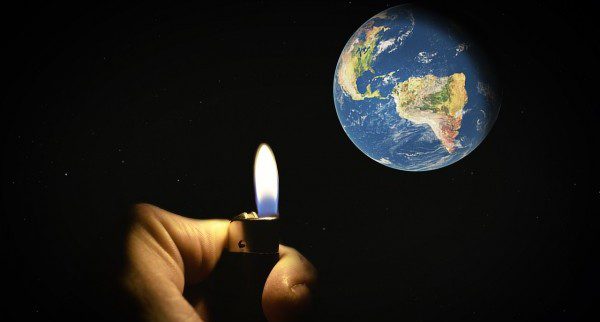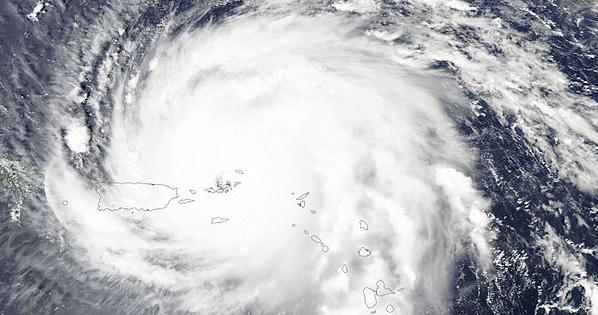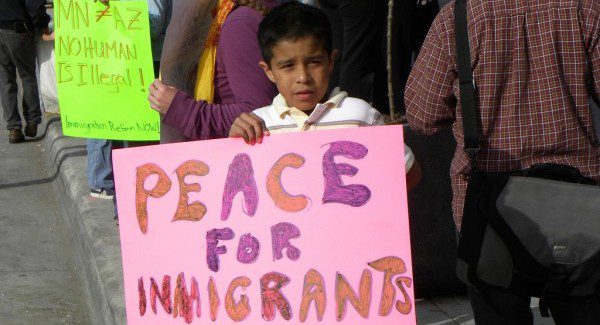Trump’s decision to pull the U.S. out of the Paris Agreement is probably the most pompous “America First!” policy change that Trump has announced thus far.

It’s also the most short-sighted–and unless the 4-yr timeline prevents it from happening–potentially the most tragic.
Care for the environment is not a nationalist concern, it’s a planetary concern. The recognition of the looming and very real planetary crisis is why leaders from 195 countries signed the Paris Agreement in 2015.
The primary goal of the Paris Agreement, as determined collectively by the leaders of nearly 200 nations, is, as stated in Article 2 of the Agreement:
A. and to pursue efforts to limit the temperature increase to 1.5 °C above pre-industrial levels, recognizing that this would significantly reduce the risks and impacts of climate change;
B. Increasing the ability to adapt to the adverse impacts of climate change and foster climate resilience and low greenhouse gas emissions development, in a manner that does not threaten food production;
C. Making finance flows consistent with a pathway towards low greenhouse gas emissions and climate-resilient development.
The first objective above, “Holding the increase in the global average temperature to well below 2 °C above pre-industrial levels” is key to understanding the severity of the situation. Consider this explanation from Willis Jenkins’ The Future of Ethics: Sustainability, Social Justice, and Religious Creativity:
Decades of observation show that global average temperatures are rising, and that, consistent with temperature rise, ice cover is retreating while average sea level is rising. Temperatures in the Northern Hemisphere during the late twentieth century were likely “the highest in at least the past 1300 years,” and the warming has already begun to affect basic biological rhythms like leaf unfolding, animal migrations, and reproductive cycles. On this there is no doubt: the climate system is steadily absorbing more thermal energy in ways that affect systems of life. (26)
While it’s difficult for scientists to predict with complete accuracy the extent to which air pollution and other factors will directly impact global average temperatures (i.e. correlating “a volume of greenhouse gas emissions to a specific temperature change,” the IPCC (Intergovernmental Panel on Climate Change) estimates that “a doubling of atmospheric carbon dioxide equivalent concentration (from a preindustrial 280 ppm to 560 ppm) would lead to a 3C (degrees Celsius) rise in temperature, although it could be as low as 1.5C or higher than 4.5C.” (27)
So which will it be? 3C warmer? 4C? or 1.5C? And does it really matter?
Here’s how Jenkins describes potential scenarios, with the impacts of sea-level rise, stress on agriculture, water shortage, etc., that will be results of warmer average global temperatures:
The difference between a rise of 2C and 4C over the coming century may represent the difference between the capacity for grain agriculture maintained or lost in some regions, or the difference between an extinction event of one quarter of life’s species and one in which more than half of species are lost. “Impact” may be the wrong metaphor for changes that would necessitate a different from of human society altogether, but the World Bank has begun to consider how to help societies meet the impacts of 4C warming. (28)
You can easily see the logic here in the Paris Agreement’s resolution to do everything humanly possible to stay under a 2C rise–and to aim for 1.5C. The consequences of warming are real.
National leaders can sit around, waiting for more data to come in, or they can act (as they have with the Paris Agreement). But in the meantime, polar ice is melting, sea levels are rising and people living in coastal regions are being displaced, species are becoming extinct, water is warming and barrier reefs are fading, habitats are dramatically changing.
And Donald Trump is pulling the U.S. out of the Paris Agreement, because he cares about Pittsburgh, not about Paris? But the Paris Agreement isn’t about Paris, it’s about the planet.
Granted, if a “Parexit” can’t take place until 2020, then perhaps the rhetoric is empty. In any case, this is nationalist, isolationist bravado at its very worst and most short-sighted. But on the bright side, it gives us a chance to reckon with the seriousness of our planetary situation.
Sallie McFague, in The Body of God: An Ecological Theology, writes that in the shadow of our post-industrial age, nature has become the “new poor.” The natural world has been marginalized, under-valued, overlooked, forgotten. The earth is vulnerable. The wealthy exploit it, instrumentalize it, colonialize it.
To claim that nature is the “new poor” is not to neglect or trivialize human beings living in poverty:
It does not mean that the “old poor”–poor human beings–are being replaced, or that every microorganism is included in God’s love in the same way as human beings are. It does, however, suggest that nature is the “also” poor, and that even microorganisms have their place in creation, a place that is not merely their usefulness (or threat) to human beings. (159).
Far from trivializing people living in poverty, we must recognize that the effects of global warming and climate change will be felt most acutely by the poor – those with fewer resources to relocate and otherwise protect themselves from negative climate change impact.
Nature matters to God; and it should matter to us–despite that fact that too many Christians resist calls for ecological care. It should matter to us regardless of what God thinks of it (or of what you think of God), because it is our home.
And our home isn’t just Pittsburgh, or Philadelphia, or Phoenix, or Paris, but the planet.











